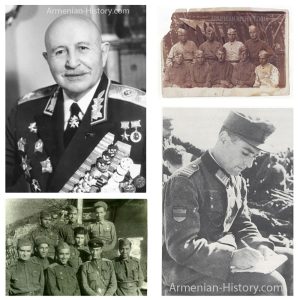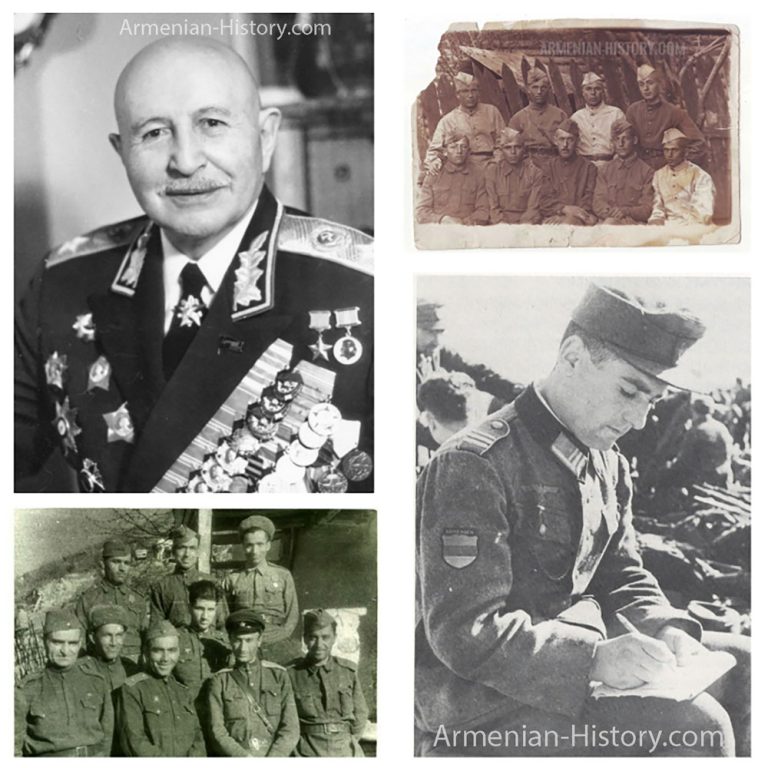There are varying figures regarding the number of Armenians who served in the Soviet Armed Forces during World War II. The most commonly cited estimate is around 600,000 soldiers—drawn not only from Soviet Armenia but also from Armenian communities across the USSR. Armenians played a significant role on the Eastern Front, with hundreds of generals, thousands of officers, and many decorated heroes, including Marshal Hovhannes Bagramyan and Admiral Ivan Isakov. According to various sources, between 200,000 and 300,000 Armenian soldiers lost their lives during the war.
At the same time, a small number of Armenians—mostly from diaspora communities or taken as POWs in Nazi-occupied territories—fought on the Axis side under complex and often tragic circumstances. The work of scholar Dr. Eduard Abrahamyan offers critical insight into this lesser-known chapter.

When I was a schoolboy, I was deeply struck by the scale of Armenian participation and loss in a war fought so far from Armenia. Even then, I couldn’t help but wonder—how could so much courage and sacrifice be summoned for distant fronts, yet at critical moments in our own history, when even a fraction of that resolve might have safeguarded Armenia itself, it was absent? Years later, with a deeper understanding of the historical context, those questions still linger—unsettling and unresolved. For a people with such a rich legacy and hard-earned lessons, it is painful to witness how easily the same mistakes are repeated.
— Dr. Smbat Minasyan
To read more about Armenia and the Armenian people in World War II, check the posts below related to this topic:

